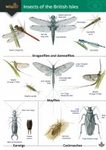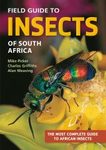Out of Print
By: Edward O Wilson(Author)
562 pages, 32 b/w photos, 471 b/w line drawings, 2 b/w maps, 38 tables
![The Insect Societies The Insect Societies]()
Click to have a closer look
About this book
Contents
Biography
Related titles
About this book
This first comprehensive study of social insects since the 1930s includes more than 250 illustrations and covers all aspects of classification, evolution, anatomy, physiology, and behaviour of the social insects – social wasps and bees, ants, termites. Since the publication of W. M. Wheeler’s The Social Insects in 1928 and Franz Maidl’s Die Lebensgewohnheiten und Instinkte der staatenbildenden Insekten in 1934, the literature on social insects has increased enormously, and new ways of studying insect societies have developed. Edward O. Wilson reinterprets the knowledge of the subject through the concepts of modern biology – from IOC chemistry to evolutionary theory and population ecology. He reviews the evolution of parental care and other primitive forms of social behaviour throughout the arthropods and includes full coverage of various forms of symbiosis between the social insects and other anthropods. He also compares insect and vertebrate societies in basic theoretical terms, showing how a unified sociobiology is possible if developed as a branch of population biology.
Contents
Acknowledgment
1. Introduction: The Importance of Social Insects
2. The Degrees of Social Behavior
3. The Social Wasps
4. The Ants
5. The Social Bees
6. The Termites
7. The Presocial Insects
8. Caste: Ants
9. Caste: Social Bees and Wasps
10. Caste: Termites
11. The Elements of Behavior
12. Communication: Alarm and Assembly
13. Communication: Recruitment
14. Communication: Recognition, Food Exchange, and Grooming
15. Group Effects and the Control of Nestmates
16. Social Homeostasis and the Superorganism
17. The Genetic Theory of Social Behavior
18. Compromise and Optimization in Social Evolution
19. Symbioses among Social Insects
20. Symbioses with Other Arthropods
21. The Population Dynamics of Colonies
22. The Prospect for a Unified Sociobiology
Glossary
Bibliography
Index
Customer Reviews
Biography
Edward O. Wilson was Pellegrino University Professor, Emeritus, at Harvard University. In addition to two Pulitzer Prizes (one of which he shares with Bert Hölldobler), Wilson has won many scientific awards, including the National Medal of Science and the Crafoord Prize of the Royal Swedish Academy of Sciences.
Out of Print
By: Edward O Wilson(Author)
562 pages, 32 b/w photos, 471 b/w line drawings, 2 b/w maps, 38 tables
"In comprehensiveness of scope and modernity of outlook The Insect Societies can truly be said to be unique. For many years to come it will surely constitute a benchmark for all those, professional and amateur alike, for whom the social insects offer one of the most compelling and fascinating pageants in all the world of nature. The book is likely to become a collector's item."
– Caryl F. Haskins, The New York Times Book Review
"No book on biology in the past 20 years has been as satisfying as this treatise on ants, bees, wasps and termites [...] It is written with clarity and verve, but what distinguishes it particularly is its catholic mastery of all of biology, from paleontology to formal genetics, from ethology to biochemistry. Nothing less can be an adequate basis for the study of our social colleagues on this earth, and nothing less has its courageous and energetic author settled for. Biology is a whole science, and here it is wholly seen [...] It is so honest and yet so rich that it attracts and holds by the scent of understanding."
– Scientific American
"The book is well illustrated, and written in a clear direct style, with such specialist technical terms as Wilson feels obliged to uses explained in a glossary; evidently he is anxious to reach a wider audience than that provided by professional entomologists – as indeed the book deserves to do [...] This handsome book will undoubtedly be widely read and influential."
– R. A. Crowson, Nature
"The Insect Societies gives an extraordinarily complete and up-to-date account of the natural history of social insects with their great proliferation of genera, species, and behavioral types [...] In these fields modern genetics, selection theory, and biomathematics are being developed to explain the evolution of insect societies and their diversity both in size and in longevity. This is one of the growing points in the study of social insects and an undertaking to which Wilson is making important contributions."
– O. W. Richards, Science
"If only because of the rarity of the event and the stature of the author [...] The Insect Societies must be considered a work of major importance. It is certain to influence the focus of research as well as the content of public information on the social insects for years to come [...] For anyone, layman or specialists, interested in a single, concise, lucid, and authoritative account of the most significant facts and theories about insect societies, The Insect Societies is the best available and will be for many years."
– Mary Jane West Eberhard, Natural History
"Because ants, wasps, bees, and termites are of importance to man, because of their ecological domination of the land, and because their activities remind man of his own, this encyclopedic work will attract the general reader, students, and biologists as well as entomologists [...] This comprehensive work must be recognized as an outstanding contribution to biological literature."
– Library Journal



































